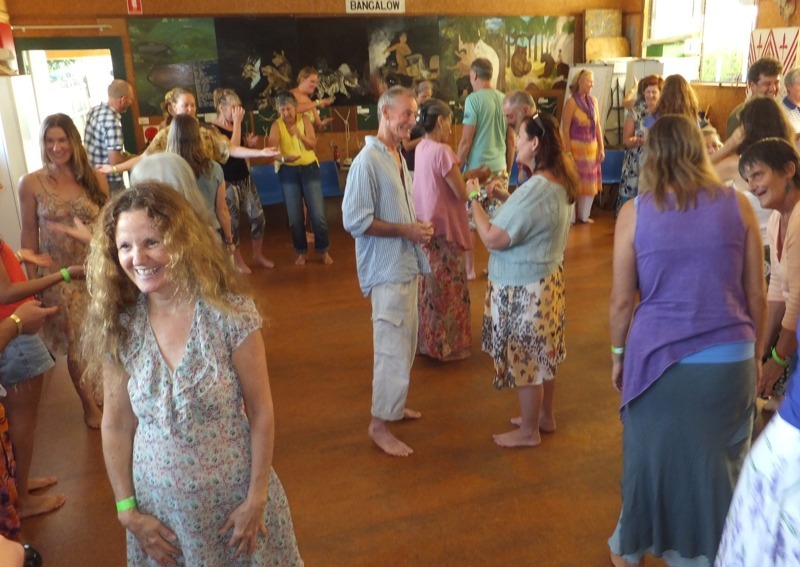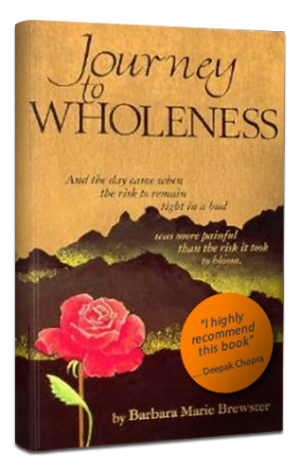It’s been a long journey from multiple sclerosis to writing articles about the power and joy of play.
Light-heartedness was beyond imagination in those dark days when I could barely trudge up my front steps, felt isolated in my confusion and fear, and grieved the loss of my health and identity. And yet the seeds of today’s lightness and freedom were sown during that difficult time. For out of the desperation to reclaim my health, I embarked on what has become my life quest — seeking to know myself and to live the truth of who that self is.
As I descended into the hell of MS, it became clear that my habits, behaviours and beliefs influenced the condition of my body. Once I acknowledged the degree to which my constricting thoughts and attitudes affected my wellness, it seemed logical to change them — Ha-ha. Logical, but not simple. I sought support for change in countless ways – through reading and listening to inspirational books and tapes, attending personal development seminars, learning to communicate skilfully, saying NO to toxic people and demands, saying YES to the unheard of — such as telling someone truthfully how I felt when they treated me in a belittling way, saying YES to the bizarre experience of resting for two hours in the middle of the day instead of steamrolling along on my juggernaut of productivity — Saying YES to the discipline of taking time to be still and open a way for inner wisdom to come forth.
Listening within was new territory for me — I was helped by reading “I Want One Thing” in which Frances Horn, at 74, wrote how her life reflected harmony when she wanted “One Thing” — to be open to and to follow WHATEVER was appropriate in the bigger picture. When she pursued what she thought was appropriate from her view in her tiny little corner of the picture, her life was a mixed-up, inharmonious muddle. I certainly related. When I clung to my concepts of how healing — of my body, finances, relationships — should look. I spiralled helplessly deeper into whirlpools of frustration and despair. Also, every one of the numerous practitioners and theories I encountered, offered no real solution for how to heal MS. All that was left for me was to open to Something in me that did know.
Turning my life over to inner workings, along with exchanging expansive for constrictive behaviours, became, I believe, the foundation for my healing. With recovery, my journey took on a new nature. If peeling away layers of constraint could yield health and a glimmer of my spiritual identity, what wonders about this self and its capacities would surface if I continued expanding — out of joy — instead of out of fear or desperation?
Ahh. What surprises we unleash when we are willing to surprise ourselves! As part of my commitment to opening to the sparkly person who too-rarely surfaced, I became a clown and toured Russia with MD and clown, Patch Adams. Back in Oregon, craving lightness as I might crave protein, I signed up for comedy classes at Portland State University. At age 51, I undertook my first-ever auditions for plays, commercials and movies. I was starving to be around people who were immersed in creative, stimulating activity.
Overnight I became a spontaneity addict. Never could I get enough of the exhilaration of creative activity. Playing the improvisation games, I felt utterly alive, amazingly focused, and astonishingly witty and imaginative. Anyone who crossed my path, including the door-to-door salesman, was roped into playing, and when there were no ready playmates, I adapted the games to writing and proceeded independently.
Gradually, I noticed my writing taking on a more whimsical style. I began expressing myself in sentences that had unexpected imagery. (Sara slipped silkily southward, sending silvery sooty shadows sideways and slickly smooched sluggish Samoans.) My talks to groups took on a more entertaining and unpredictable character. Clearly, when I allowed myself to play with words, sentences and ideas, I unleashed a profound sequence. When I am playful with my writing or speaking it stimulates spontaneity, which stimulates imagination, which stimulates creativity, which yields fulfilment – or wholeness.
Schiller wrote of a “watcher at the gates of the mind,” who examines ideas too closely. He said that in the case of the creative mind “The intellect has withdrawn its watcher from the gate, and the ideas rush in pell-mell.” Keith Johnstone:
Improvisation – or play, for our purposes – is based on the concept of offers and blocks. An offer is anything that is put forth by people or circumstances. We can accept offers and thus the action can move forward. If we block offers the action is stopped. In the POP (Power of Play) workshops we play the game of “Yes And” telling a story one sentence at a time. In it, we are accepting each person’s offer of a sentence, literally saying, “YES, I accept your offer, AND this is what happens next–”
Just like telling a story one sentence at a time, our lives are stories unfolding moment by moment. Unfortunately, as children we learned, as Keith Johnstone writes, “never to act on impulse, and that whatever came into my mind first should be rejected in favour of better ideas. I learned that my imagination wasn’t ‘good’ enough.” Constrained by our fear of saying/doing it wrong or looking foolish, we became cautious, sticking to safe responses, recycling past patterns, acting out of habit, busily leaving the moment to plan ahead, and skilfully blocking offers so that our stories won’t take us into difficult or strange territory.
It’s horrible to be laughed at against your will. Either you suppress unwelcome laughter or you start controlling it. We suppress our spontaneous impulses, we censor our imaginations, we learn to present ourselves as ‘ordinary,’ and we destroy our talent – then no one laughs at us.
By playing spontaneity games we get to practice, in a fun and safe way, responding to offers out of our intuitive rather than our contained selves. We reconnect with and cultivate trust in our first impulses. We experience the exhilaration of stepping beyond habitual and predictable patterns. We open ourselves to the unexpected, unplanned, unimagined ideas and responses lurking within us just waiting to be tapped. And, the joy of it is that we’re laughing most of the time.
Published in the June I998 issue of DIVERSITY – The Magazine of the Australian Complementary Health Association




